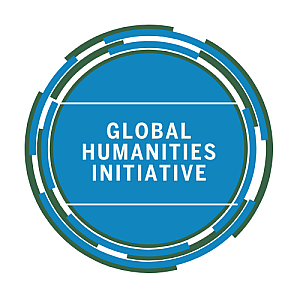Meridian 5: Global Humanities Symposium – Observing Cultural Diplomacy
On July 16, 2021, Meridian International Center and the National Endowment for the Humanities co-hosted The Global Humanities Symposium to amplify contemporary scholarship and scholars that focus on cultural diplomacy. The event consisted of a keynote speech from Ambassador Glyn Davies and three panels discussing research on Cultural Exchange, Museums’ Role in Cultural Diplomacy, and Digital Public Humanities.
Great and Good Friends in US-Thai Relations.
The Keynote Speaker, Former Ambassador to Thailand Glyn Davies, spoke about his employment of cultural diplomacy to strengthen and recontextualize the relationship between the United States and Thailand: “We had to rewrite the origin story of our relationship.” Partnering with Meridian International Center to commemorate 200 years of friendship, and using collections from the Smithsonian Institution, Library of Congress, National Archives, and 10 presidential libraries, Great and Good Friends was curated. Showcasing the extensive tradition of Siamese and Thai gifts to the Unites States, and friendly correspondence between past presidents, kings, and queens, this exhibition was the first time such a broad consortium of leading national institutions had all lent objects to an overseas exhibition. Davies explained, “A treaty is an agreement between states, not so much a connection between people. We needed something more tangible, technicolor, and inspiring.”
Cultural Exchange.
The first panel was moderated by Dr. Richard Kurin, Smithsonian Distinguished Scholar and Ambassador-at-Large, and consisted of presentations from Nick Pozek, Assistant Director, Parker School of Foreign and Comparative Law at Columbia University; Dr. Rosanne Sia, Assistant Professor, Institute for Gender, Race, Sexuality, and Social Justice at University of British Columbia; and Madison Leeson, Researcher and PhD Candidate of Cultural Heritage Management at Koç University. “It’s been important to flip our view of cultural diplomacy and to think about what we miss if we take only a top-down approach. It is important for us to look in unlikely places. To look where we might not find American cultural exchange and people who do not clearly represent America and to try to expand and be more inclusive in our view of what cultural diplomacy can be,” Dr. Sia said. As the scope of cultural diplomacy expands, foundations and philanthropists must also expand how they operate. Pozek explained, “The leaders of these foundations do struggle with the legacies; the foundations are always created by imperfect people. It is important to leave space to navigate the foundation’s roles through values.”
Museums’ Role in Cultural Diplomacy.
The second panel was moderated by Dr. Christine Sylvester, professor of political science at the University of Connecticut, and consisted of presentations from María Luque-Larena, Director for Cultural Affairs, Fundación Cosejo España-EE.UU.; Dr. Sarah E. K. Smith, Assistant Professor, Communications and Media Studies at Carleton University; Dr. Jeffery Brison, Associate Professor of History at Queen’s University in Kingston; Dr. Antonio Cuyler, Associate Professor of Arts Administration at Florida State University; and Khamal Patterson, Cultural Heritage Law Analyst at ARTIVE. “Museums are only a tiny part of this conversation on cultural diplomacy,” said Dr. Smith, elaborating on the importance of looking to artists and practitioners as cultural diplomats. Dr. Cuyler spoke about the moral responsibility that museums have in cultural diplomacy, to identify why certain objects are held in collections when they are not culturally significant to the museum or the community it serves, but act as reminders of museums’ colonial legacies: “The psychology of the colonizer and this idea of having an object communicate something to you about your supremacy, your superiority, even if it is fallaciously built. We’re going to hold onto this as evidence that we did this”.
Digital Public Humanities.
The third panel was moderated by Brett Bobley, Chief Information Officer for the National Endowment for the Humanities, and consisted of presentations from Dr. Natalia Grincheva, Program Leader of Arts Management at LASALLE College of the Arts in Singapore; Kacey Hadick, Director of Conservation Programs at CyArk; and Henna Wang, Co-Founder of Gesso. As the era of digital globalization continues to evolve, public humanities and cultural organizations must evolve and adapt to new roles. “Technology should be a bridge, not a barrier,” said Wang. Museums can adopt a new role as a ‘soft power’ in cultural diplomacy, while auditory experiences become more common. Elaborating on virtual tours and personal storytelling, Hadick remarked, “It’s an exciting way to not only provide virtual access, but also strengthen local communities with these skills and promote production and respect for these places by including all these different levels of meaning and importance of these places to share with local communities.” The opportunities for historic preservation and education are limitless with digital public humanities, and cultural diplomacy can be at the forefront of these endeavors, working to connect and strengthen international relations. The key is inclusivity and accessibility.
Where to Look Next.
The one constant in cultural diplomacy, as seen in each of the scholarly presentations in this symposium, is that cultural diplomacy can be found in the most nontraditional of spaces. As our world becomes more intertwined, there is never a connection that does not matter, and cultural exchange can happen in the most seemingly unlikely of places. So, as we all emerge from a post-pandemic world, remember to look where others might not and consider relationships anew as we utilize and fortify the place of cultural diplomacy in the world.
Project summary
| Meridian 5: Global Humanities Symposium – Observing Cultural Diplomacy | July 2021 | |
|---|---|
| Regions: | Near East and North Africa, Western Hemisphere |
| Impact Areas: | Cultural Diplomacy |
| Program Areas: | Culture |
| Partners: | Public Sector |
